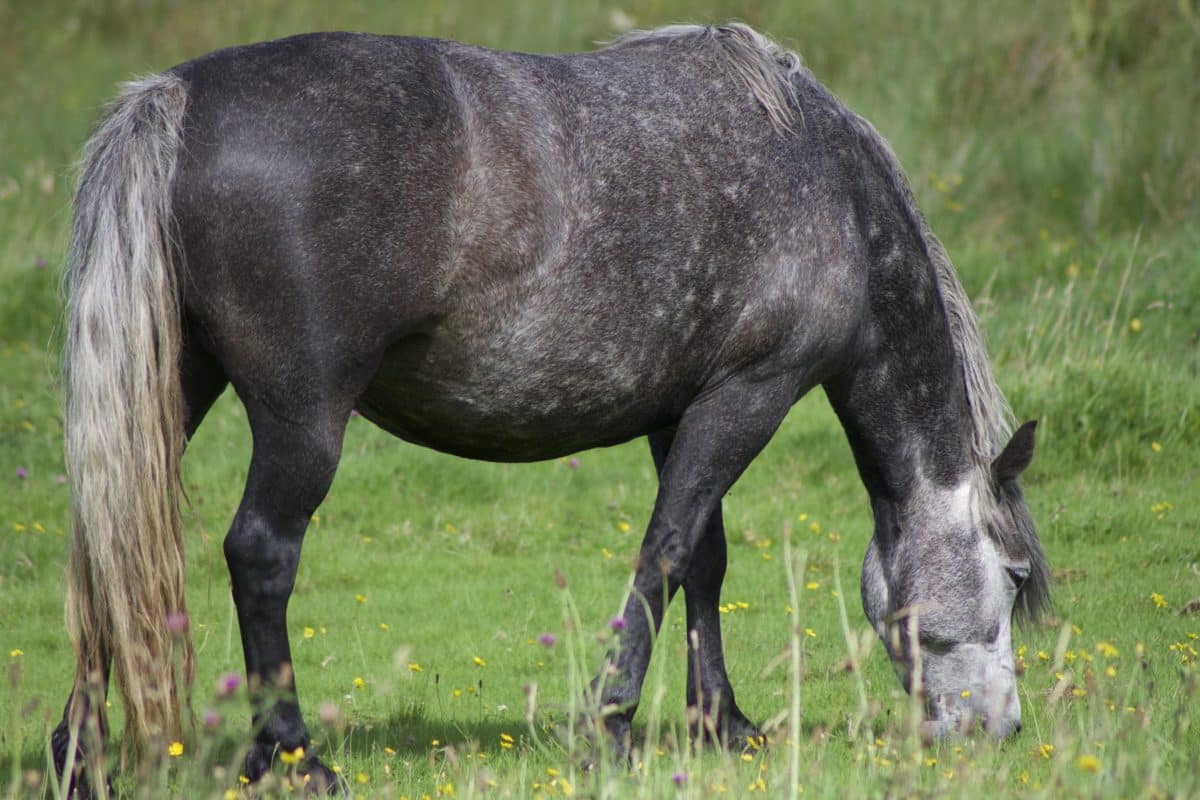
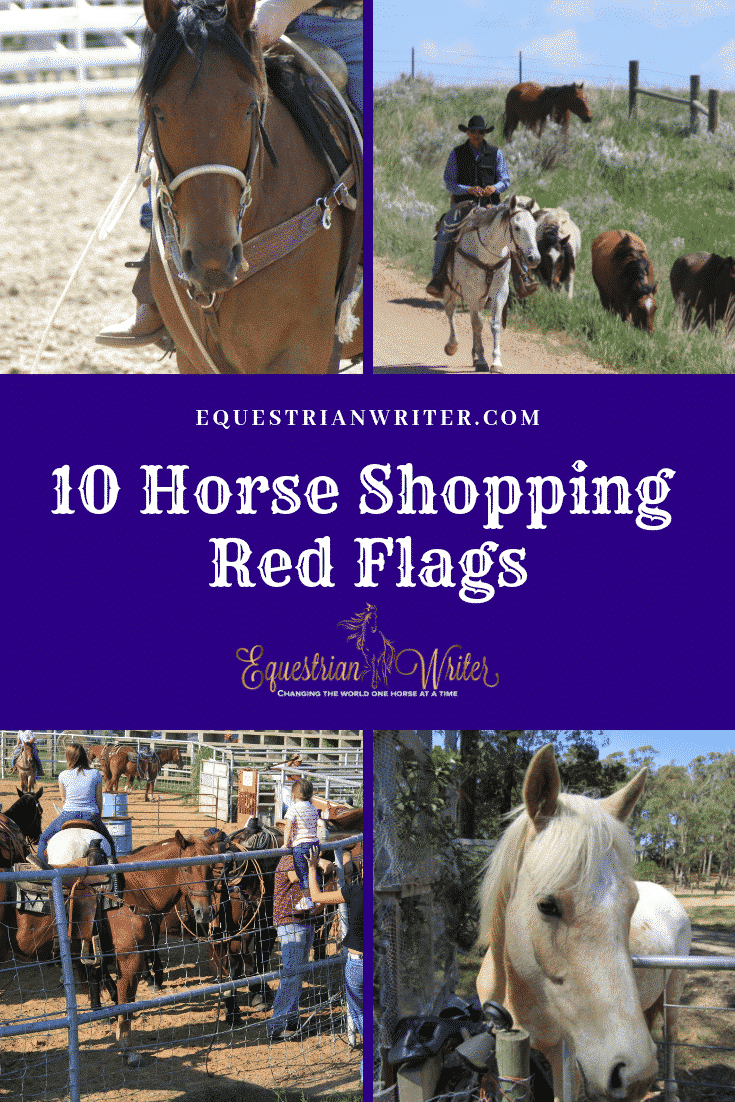
Buying a horse can be an overwhelming experience for first time horse buyers. As a continuation of Tuesday’s article A Beginner’s Guide to Horse Shopping, here are a few red flags to look for when purchasing your new horse.
1. Excessive sweating, trembling, or lethargy
These are all red flags that point towards the horse being drugged. Sellers drug horses for multiple reasons. They may be covering up a training problem, undesirable temperament, a health problem, or lameness. If you encounter a horse for sale exhibiting these signs, just walk away. Don’t bother wasting the money on a vet check to confirm your suspicions. There are plenty of nice horses out there for sale. There is no reason to take the risk.
2. Refusal to allow the buyer to try the horse
Potential buyers must be allowed to try the horse. How else are you going to know if the horse is right fit? If you are looking at a horse for sale but the seller won’t let you try anything with the horse, there is something wrong. Even if the horse is a prospect with little to no training, you should be able to handle the horse. Basic things like grooming and leading will still give you an idea of what type of horse a prospect is. Certainly a horse with training should be tried by the potential buyer. If you want the horse for riding, you should be able to ride it (as long as it is saddle broke and old enough).
3. Limiting what the buyer can do when trying the horse
Anything the horse is advertised as being able to do should be fair game for potential buyers to try with the horse. If it is a trail horse, you need to ride the horse outside of the arena. If the horse is a trained reining horse, you need to try some of the reining maneuvers with the horse. As a rule of thumb, arrangements must be made for you to try at least 90% of the things that the horse is advertised as being able to do.
4. Refusing a vet check
A vet check is an important part of the buying process. It is vital to ensure that the horse is healthy and fit for your purposes. If the seller balks at the mere mention of a vet check that is your cue to walk away. No matter how nice the horse is or how perfect he seems, balking at a vet check is a huge red flag. It brings up the question of exactly what they don’t want you to know about the horse. You need to be granted access to the horse’s full medical history to make an informed decision. If you start asking questions about the horse’ medical history and the buyer gets evasive, walk away. There are plenty of nice horses out on the market.
5. Pressuring the buyer
This is a huge red flag. Even if the seller doesn’t deny a vet check or further investigation into the horse’s history and training, they may try to pressure you into feeling guilty for asking so many questions. If a buyer is pressuring you for an answer on the spot, run. That is a sign they are getting nervous. As soon as the buyer seems nervous, walk away.
6. Having multiple buyers out to see the horse at once
This seems like such a small thing to new horse buyers but it is a huge red flag. Industry standard is that a seller comes to see the horse and talk to the seller one-on-one. Sellers who insist on having multiple buyers out at once are trying to use the buyers against each other and turn it into an auction. If they want to auction their horse, they need to take the horse to a reputable auction. This behavior is unacceptable when selling privately. These sellers will end up pressuring the buyers, playing them against each other, and generally deny things like vet checks. If you find one of these sellers, run.
7. A horse that is “registrable” but comes with no papers
This is very common. Registration papers affect the price of the horse. If the horse doesn’t have papers, some sellers will try to fudge it by marketing them as “registrable” so they can charge the same price as a papered horse. If it were really that easy to go register the horse, the buyer would have done it. Often, in this situation, the horse is registrable, but registration would either be with an obscure color registry that doesn’t require proof of parentage or you would have to spends hundreds of dollars tracking down the necessary paperwork and signatures back through a string of owners to the original breeder.
8. A “show horse” with no show record
For the sake of selling, only show records that are documented by a reputable organization–like the AQHA or APHA–count for the sake of a sale. Local fun shows who do not maintain or post results don’t count for much. That is not to say the every horse must have a documented show record. Trail horses and weekend warriors don’t necessarily need to have documented show records. A horse that is trained for the show but lacks a show record is marketed as a “show prospect.”
9. A “prospect” that is over 4 years old
“Show prospects” should never be much more than 4-years-old. If an older horse is being marketed as a show prospect, it means one of two things. Either the horse was shown and won nothing or the horse has never been shown and the buyer is looking for an excuse to jack up the price. That is not to say that an older horse cannot become a show prospect, but there is very little market for an older show prospect. Marketing an older horse as a “show prospect” is not grounds to charge more. A “show prospect” over 4-years-old holds the same market value as a well-trained trail horse.
10. A horse that is being marketed for color
One of the biggest rules of horse shopping is not to shop for color. However, a lot of people are still willing to pay extra for a dilute (buckskin, palomino, etc) or pinto. Therefore, color can drive up the price of a nice show horse. But, a colored horse should not be marketed with color as a selling point. The horse should still be marketed according to its training rather than its color.
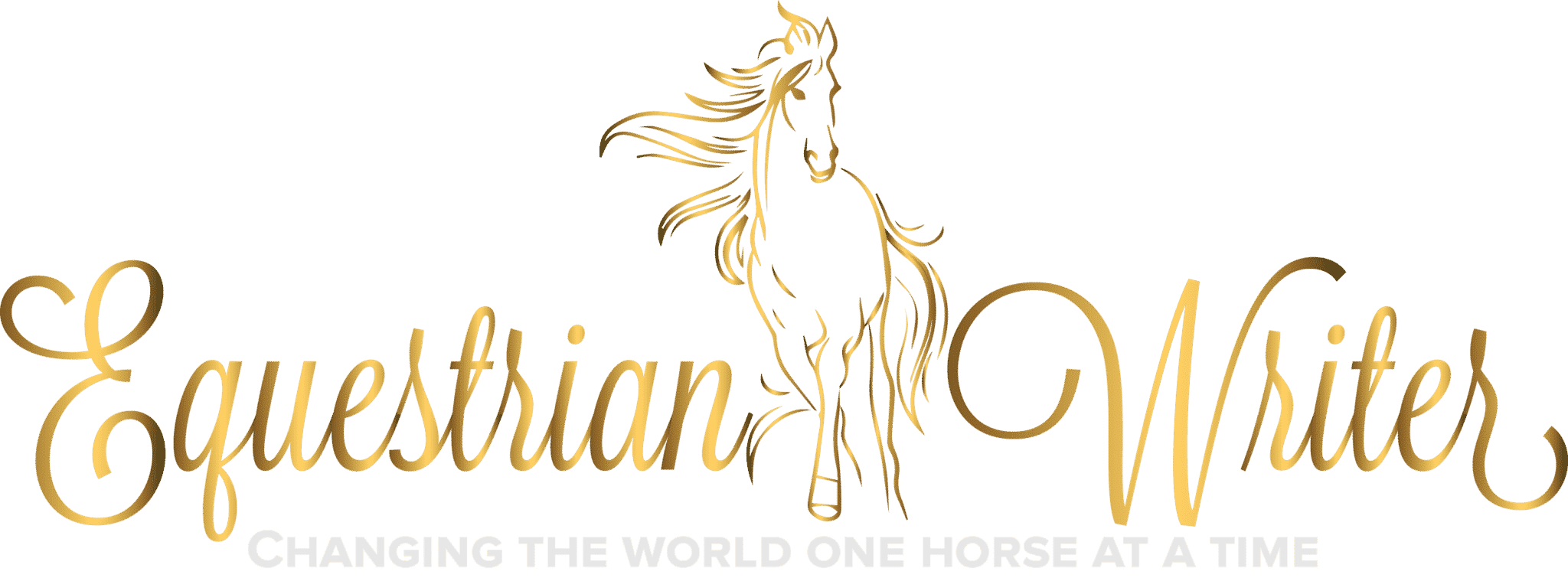





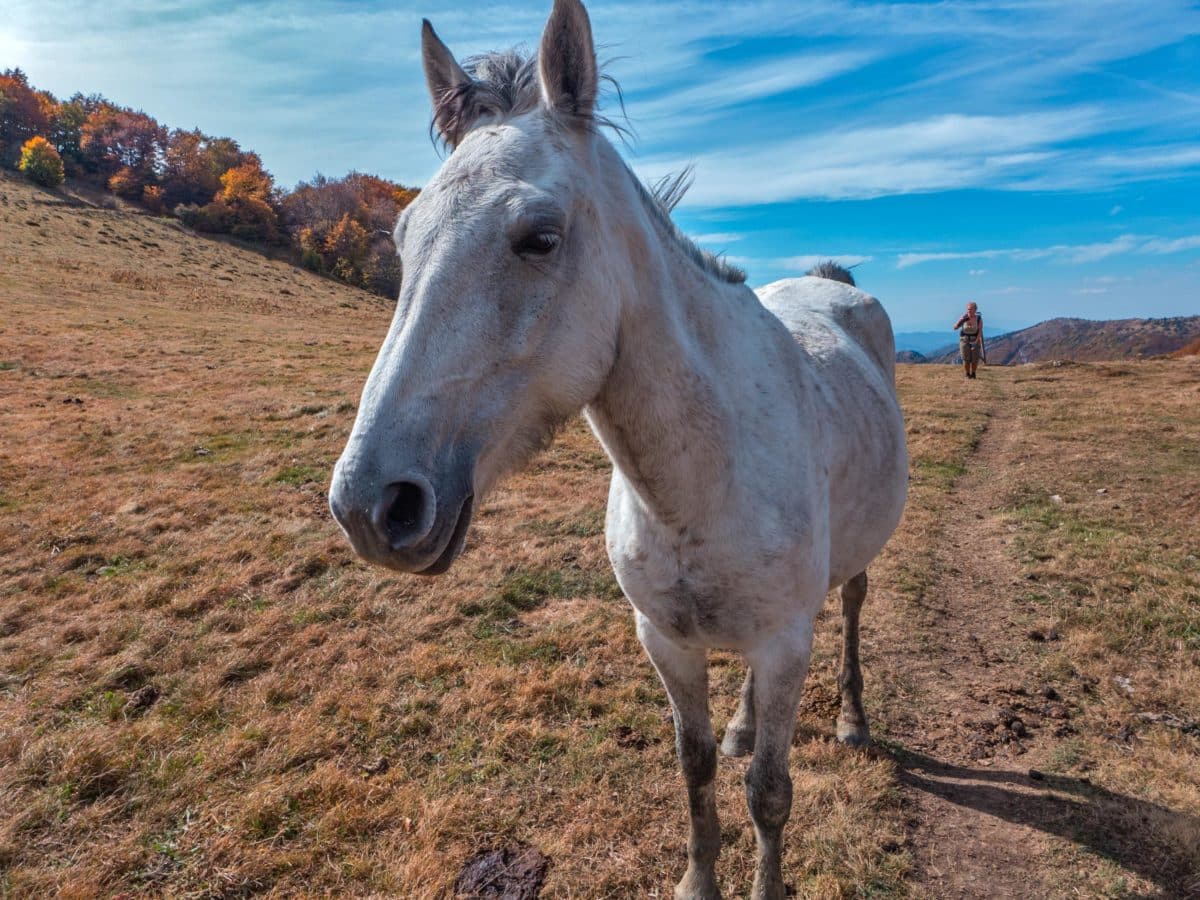
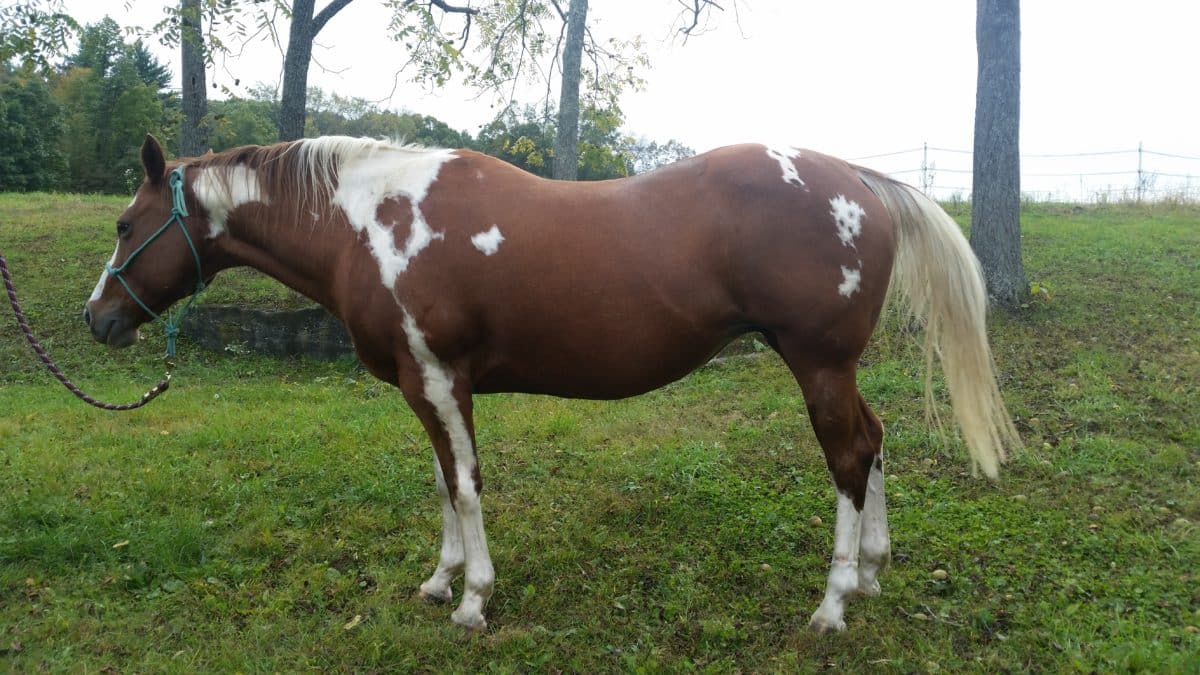
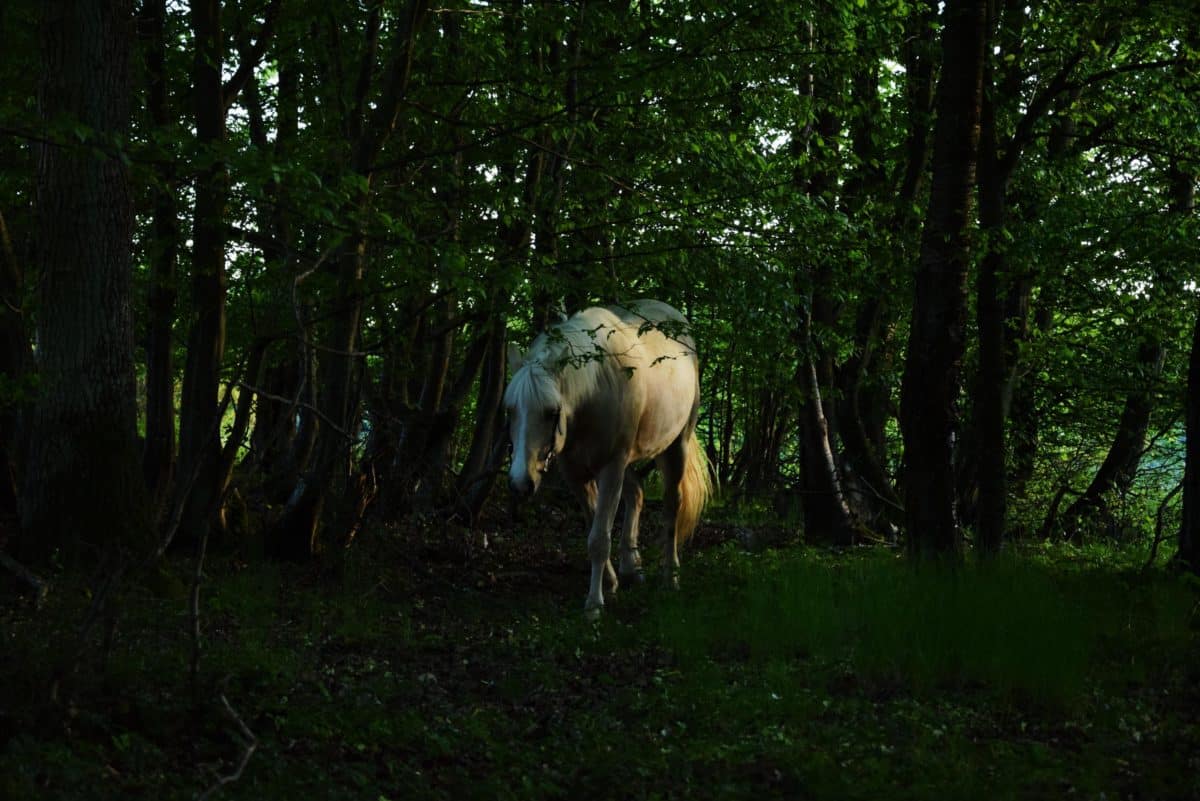
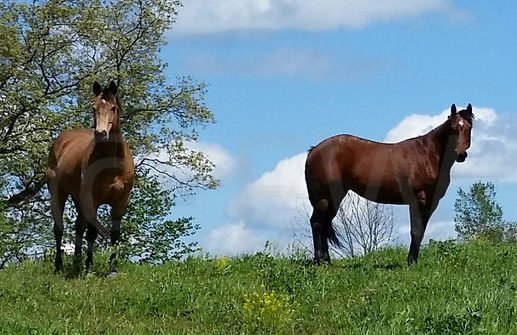
you forgot:
arriving to the horse all tacked up waiting for you
the seller says if you want to do a PPE you’ll have to use their vet
you have to put down a deposit before seeing the horse
I really appreciated the 10 warnings for buyers to watch for. I sold horses for 22 years, almost all family horses, trail, camping, play-day, etc. Also I have a few in police work and an extension of it – therapy for disturbed teens. I also bred foundation AQHA horses and the foals were registered before being sold. One thing I would have added to point #1 about watching for drugging is to watch for the horses response to noise or movement. Normally a horse will move eye and ear in a coordinated movement. If there is a lag in either one (not in harmony) you should check further. I loved it when I was considering a horse to buy, my vet would ask a potential seller if he minded if he drew a vial of blood to store for a month. This way if the horse changed you can check the blood and now have recourse to return it for a full refund.
Another thing to check, if they have shown, especially jumping, do a very simple thing – take something with a dull point, lift the foot and poke the bulbs (2 rounded protrusions you could call the heel. Push a bit hard but not as to injure him. (I always used the point of a hoof pick). If the horse doesn’t react by pulling his foot away, generally quickly, he may have been nerved. This is a process of cutting the nerves that would cause foot pain. It is very dangerous as the horse cannot feel his footing and is prone to stumbling and you can imagine what else.
Another thing I used to do was if the buyer was new, timid, unsure – They could purchase the horse (they would need to own him for my personal liability) and I would hold the payment for one month. They would pay a month’s board and during the month they could join me on rides during the week, I would make sure their tack fit, they would learn basic care and most of all find out if they really had the time or commitment to own one. If it just didn’t work out they would get their money back. It worked well because new riders can teach bad habits that could ruin a horse. This would be nipped in the bud so the horse would be salable again. My vet said even though almost all of the horses were vet checked, being able to ride them for a month is really better, a vet check only tells you if they are ok that day. Riding for a month will bring out any problems that just weren’t bothering him that day.
Well, as you can see, I could go on and on. I learned early on that if you do it right you get good homes for your horses and keep the buyers as friends. I haven’t sold a horse in nearly 20 years and yet still get the occasional call or email from friends made during those years and have a scrapbook of pictures, cards, newspaper clippings of my “graduates” and love going through it.
Beverly Meredith
I had been told repeatedly never to purchase a horse from the racetrack. I did and I never regretted it. She ended up being my best friend and protector. She took a bit of training off of the tract and hated the sight of a short whip. Simple enough to remedy. I just never used one.
Buy an slaughter auction horse like you would buy any horse. Check confirmation & movement.
Check for any defects that could not be corrected with better nutrition, conditioning, or training.
Check feet well.
Check overall health signs (teeth, breathing sounds, manure, skin, etc). These are just some things to start with.
Most important…Check temperment (eyes can tell you a huge amount about a horse’s attitude, intelligence & emotional stability…but keep in mind that they KNOW where they are headed…to slaughter… and are under a lot of stress. I once bought a mare who bit, kicked & bucked..but her eyes told me all I really needed to know. Her eyes had a red-rimmed glint of anger & distrust, mingled with legitimate fear…BUT she also had SO much intelligence & curiousity about her surroundings that I bought her her. Inside of 6 months she settled in & we could trust each other 100% with our lives. She turned out to be the most intelligent, dependable, loyal & loving horse I ever had. She was the ‘the one’ horse in my whole life…the horse everyone searches their whole life for.
Remember though…that if I wasn’t committed to her eventual rehabilitation, or if I was bringing her home to children I never would have bought her. You have to consider EVERYTHING…not just the horse.
So I am just curious how would you go about rescuing a good horse from auction .. to rehabilitate and keep it from slaughter, possibly sell the horse to a family to love to repeat the cycle again grab another one from auction to save from slaughter what do you look for? To know the horse is sound , is it possible to try a horse before it’s auctioned? I want to know the horse is mentally sound as well weather the horse becomes a loveable pet or a beginner b show horse I don’t care as long as it don’t become dog food or glue. That’s where my heart is at . Too many healthy loving horses are put down when they could have had a story to tell with a loving family . A lot of the horses are a source of green , greed and just a no feelings about taking only what we should for proper use of life sustaining, they are over useing the resources with animals every where we are seeing a huge drop in numbers. How sad is that? I prefer to save what I can. I cannot help but think of Harry and Snowman. What a life they had for a mere $80 this horse that was headed to slaughter broke records in jumping had a story to tell. Loved the man that rescued him from what would have been the end of his Life. Why can’t there be more of them ?